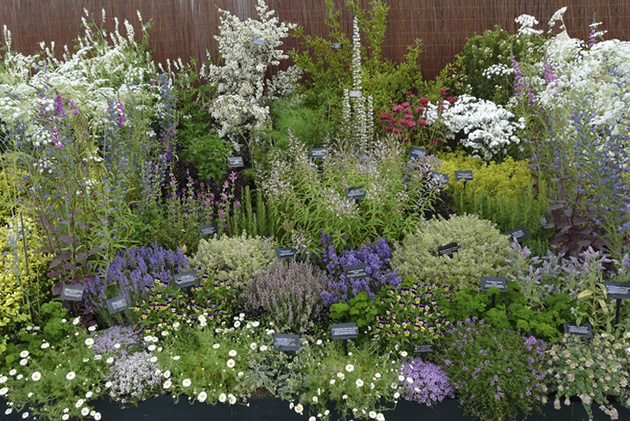
The Sunday Mail

 Andrew T. Mangwarara
Andrew T. Mangwarara
Herbs and spices have been a source of medicine for treatment of diseases for many years, and a way to add flavour to our foods.
Cities were built on the once lucrative salt and spice trade, and today scientific research has zeroed in on the value of herbs as mankind faces a growing threat from various diseases and ailments.
Growing your own herbs has many health benefits as they have antibacterial and antiviral properties.
The sad fact is that the most potent herbs are rarely used compared to the least powerful (salt and pepper) for flavouring our food.
Many herbs contain more beneficial disease-fighting antioxidants than most fruits and vegetables.
With our busier lifestyles many people are now eating on the go and this has resulted in the consumption of mass produced unhealthy snacks and meals that contribute to serious health problems such as heart ailments and various cancers.
The answer lies in going back to nature.
There are more than a thousand species of plants that have medicinal properties in Southern Africa and choosing the correct herbs for your herb garden or for your needs is important.
There are both indigenous and exotic herbs and growing herbs in your garden ensures that you get them fresh as compared to buying those that have been on the shelf for some time and will have lost a lot of their value.
Ideally a herb garden should be located near your kitchen or cooking area for easier access when the need arises as you put your meals together.
Herbs are fairly easy to grow; requiring full sun and well-drained fertile soil (rich in organic matter). One can plant up to ten plants in a square metre so space is no excuse not to grow them.
A word of caution though for using herbs, seek proper advice if you are taking medication, pregnant or giving to young children.
Grow the common herbs which are easily available from most garden centres in the country.
For the indigenous species it is best to seek advice from your local botanic garden for proper identification of these as there are so many numerous lookalike species.
Let’s look now at some of the favourites amongst garden enthusiasts:
Lavender (Lavandula dentate) is the herb for insomnia (lack of sleep) and to repel insects in wardrobes and cupboards.
Make a cup of tea with the leaves for a relaxing tea when one can’t sleep.
Lavender is good for digestive complaints, loss of appetite, vomiting, nausea and an upset stomach.
Zumbani (Lippia javanica) is not very well known yet it’s one of the most abundant plants in many areas of Zimbabwe.
Referred to as Umsuzwane or the fever tree, its leaves and twigs are widely used for coughs, colds, fevers and bronchitis.
It is used for other ailments such as rashes, stomach problems and headaches. Make a weak tea to be enjoyed as a general health beverage.
Rosemary (Rosmarinus officinalis) is a herb with many uses and can be used as an insecticide in your garden.
Shampoos containing pure extract of rosemary will bring new life to your scalp and prevent dandruff.
A few leaves simmered in water for 30 minutes, strained and cooled then poured over the hair as a rinse helps the scalp.
Rosemary leaves help with relieving headaches and assisting the memory, and has been known to aid digestion of starchy foods and rich meat like pork and veal. It can also relieve colic and depression.
Garlic (Allium sativum). It’s in the middle of the night and suddenly you have a toothache and the dentist is just too far away; just take a cut garlic clove and place it on the sore tooth, you will be amazed by the results.
Scientific research has proven that regularly taking garlic reduces the frequency of the common cold, lowers the risk of prostate cancer, lowers blood pressure by as much 8 percent, and is good for intestinal infections.
Sage (Salvia officinalis). One of the herbs which are good for tonsillitis (throat and mouth infections), aiding digestion and perspiration, bleeding gums (the leaves rubbed across the teeth regularly help to whiten them), muscular pain and insect bites is relived by sage.
Sage has a reputation for retarding old age, restoring energy.
In cooking sage helps to counteract the richness of foods like pork, geese, duck and oily fish.
It combines well in dairy foods, in beans and pea soups and makes a pleasing and beneficial tea.
Aloe vera is the skin doctor as it is excellent for ailments like rashes, pimples and even burns, BP, indigestion, constipation, diarrhoea.
It has been used to sooth cuts, scrapes and skin irritation and is widely used as an immune system booster for HIV patients by drinking the gel in warm water with sugar or honey added.
As can be seen there are so many benefits to having your own herb corner in the garden.
Other herbs one can grow in a garden are mubvee orumvebe, referred to as sausage tree (kigelia africana), mufuta or umhlafutho commonly known as the castor oil tree (ricinus communis), mutsambatsi or intakubomvu (lannea edulis), fennel, comfrey, bay leaf, parsley, to mention just a few.
Have your pharmacy in your garden! It’s readily available always.




